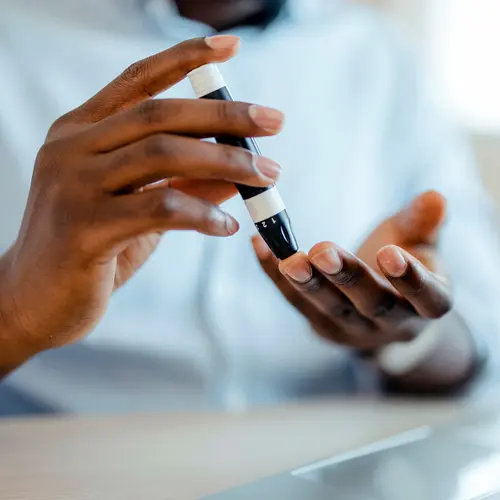What's the Future of Treating Diabetes?

Hide Video Transcript
Video Transcript
Narrator
What does the future hold for diabetic treatments? C. Ronald Kahn, M.D. President and Director, Joslin Diabetes Center
Well, first of all I would say we have actually had some big improvements in the treatment of type-two diabetes. We should keep in mind the fact that we now have several classes of drugs that can be used. We used to have really only one kind of oral medication. Those were called sulfonylureas, the drugs that stimulate the pancreas to make more insulin. Now we have, in addition to that, drugs that improve insulin sensitivity in muscle and fat, so called thiazolidinediones like rosiglitazone and pioglitozone, troglitazone. C. Ronald Kahn, M.D. (cont.)
And we also have drugs that improve insulin sensitivity in the liver, metformin. These drugs are already making a big difference in people with type-two diabetes. C. Ronald Kahn, M.D. (cont.)
We can, in many people get good control with a combination of both diet and one or sometimes two of these drugs together. For those patients who don't get good control from those, we often now use insulin. And it has become more and more acceptable to understand that people with type two diabetes, even though they are not insulin dependant for survival do often benefit from insulin treatment for improving their glucose levels and reducing their complication rates. C. Ronald Kahn, M.D. (cont.)
In addition, there are many new drugs in the discovery pipeline. I actually am pretty optimistic that over the next few years we will see new classes of drugs, not just new members of the old classes. For example, there are drugs that act on this molecule called PPAR gamma that we use now. These are rosiglitazone, troglitazone and pioglitozone. But there are drugs in the pipeline that act on more than one member of this family of receptors. C. Ronald Kahn, M.D. (cont.)
There are also drugs that are acting on new targets. For example, there has been a lot of excitement in the news about a drug called resveratrol. It's the so called active ingredient in red wine that improves metabolism. And whether that will be a drug that we take as individuals or not is not so clear yet. But what is clear is that this new target of this drug which is a new class of molecules called the sirtuin proteins. That actually may open up a whole new range of therapies and even preventions for type-two diabetes. 